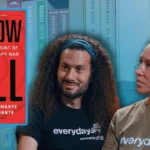Amazon has become one of the most attractive platforms for entrepreneurs looking to build successful e-commerce businesses. With its vast customer base, powerful logistics network, and trusted brand, Amazon allows sellers to tap into a global marketplace. However, not all Amazon businesses are built the same. There are several different business models sellers can choose from, each offering unique advantages and challenges. Understanding these options is key to building a profitable and sustainable selling strategy on the platform.
Below are four of the most common Amazon seller business types:
1. Private Label
Private labeling involves sourcing generic products from manufacturers, then customizing the branding—such as labels, packaging, and product design—and selling them under your own brand name. This is one of the most popular strategies among long-term Amazon sellers due to its scalability and brand control.
Sellers typically use platforms like Alibaba to source products and apply their own branding. Amazon’s Fulfilled by Amazon (FBA) services are commonly used to manage storage, shipping, and customer service.
- Pros: Higher profit margins, brand ownership, long-term scalability
- Cons: Requires upfront capital, branding effort, market research
[ai-img]private label, amazon branding, packaging[/ai-img]
2. Retail Arbitrage
Retail arbitrage is a method where sellers purchase discounted or clearance items from retail stores and resell them on Amazon at a markup. This model is relatively low-risk and does not require manufacturing or branding, making it popular for beginners.
Sellers often use barcode scanning apps to check if items are profitable to resell on Amazon.
- Pros: Low initial investment, quicker returns
- Cons: Time-consuming, non-scalable, inventory inconsistency
3. Wholesale
Wholesaling involves purchasing products in bulk directly from manufacturers or distributors and reselling them on Amazon. Unlike private label, sellers do not create their own brand, but they deal in established branded products.
This model offers more stability and less marketing effort since customers already recognize the brands being sold.
- Pros: Lower marketing costs, access to trusted products
- Cons: High upfront costs, competition on listings, lower margins
[ai-img]wholesale products, amazon warehouse, bulk inventory[/ai-img]
4. Dropshipping
Dropshipping is a fulfillment method where sellers list items for sale on Amazon without holding any inventory. When an item is sold, the seller purchases it from a third-party supplier who ships it directly to the customer.
This model is appealing due to low overhead costs. However, Amazon has strict rules regarding dropshipping, and failure to follow them can result in account suspension.
- Pros: Low startup costs, minimal inventory management
- Cons: Less control over fulfillment quality, potential for account issues
Choosing the Right Model
The ideal model depends on the seller’s goals, budget, and level of experience. For instance, those looking for long-term brand growth may opt for private labeling, while beginners might start with retail arbitrage to test the waters. It is also common for sellers to start with one model and transition to another as they gain experience and capital.
FAQs
- Q: Which Amazon selling model is best for beginners?
A: Retail arbitrage is often recommended for beginners due to its low-risk nature and small startup costs. - Q: Can I switch from one model to another?
A: Yes, many sellers start with one model and pivot based on what works best for them. For example, starting with retail arbitrage and moving to private label is a common trajectory. - Q: Is dropshipping allowed on Amazon?
A: Yes, but it must comply with Amazon’s dropshipping policy. You must be the seller of record and ensure your supplier ships products without their branding or invoices. - Q: How much money do I need to start an Amazon FBA business?
A: It depends on the model. Private label may require $2,000 or more, while retail arbitrage can be started with a few hundred dollars. - Q: Do I need a business license to sell on Amazon?
A: Typically, a business license is not required to start, especially for individual sellers. However, for certain product categories or wholesale partnerships, it may be necessary.









